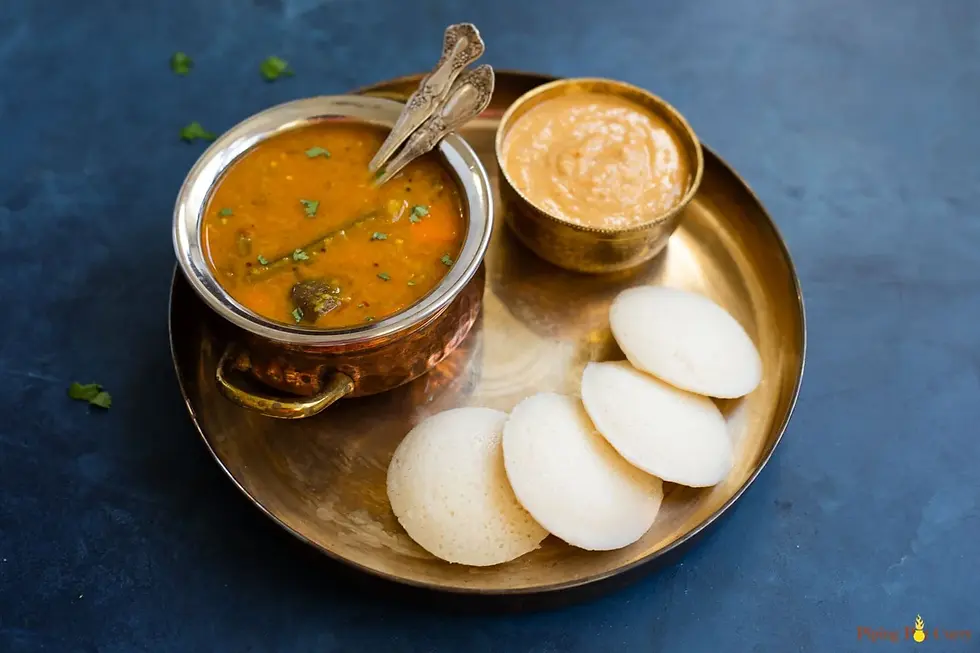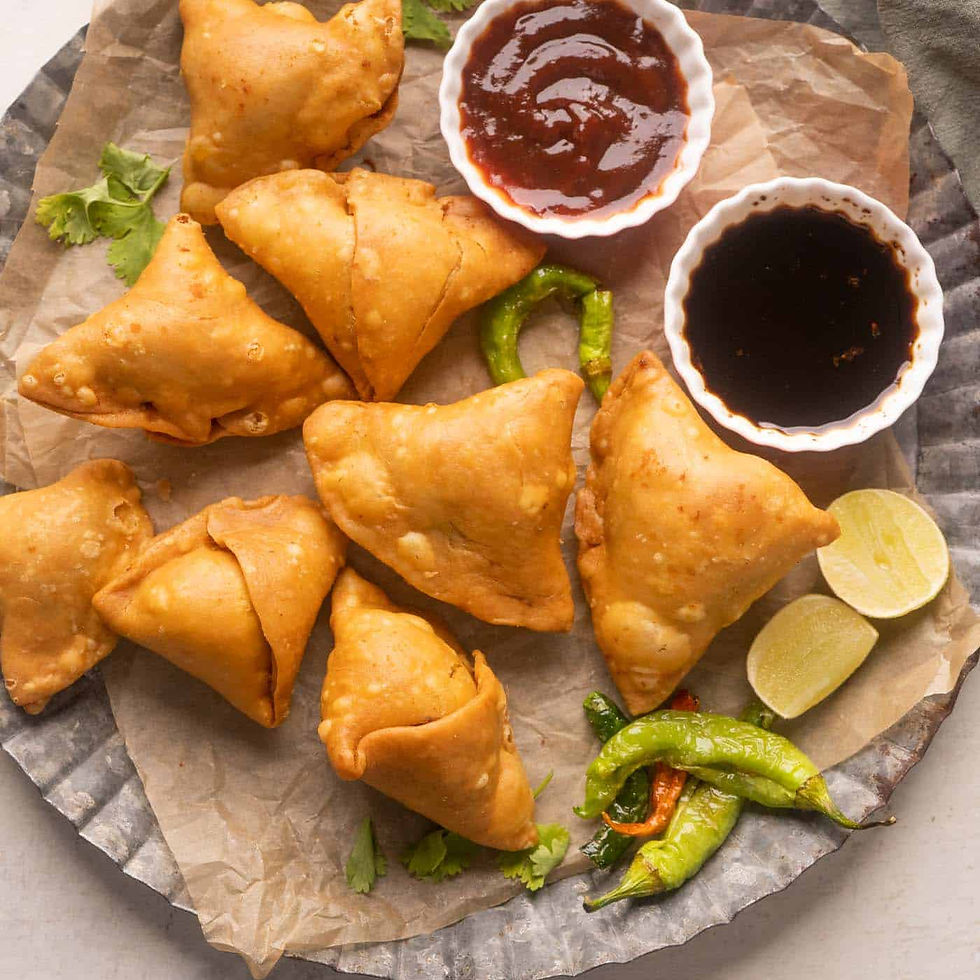Cheap Local Food to Try in Morocco
- tasteafroindia
- Dec 6, 2023
- 4 min read
Updated: Dec 8, 2023
Breakfast food
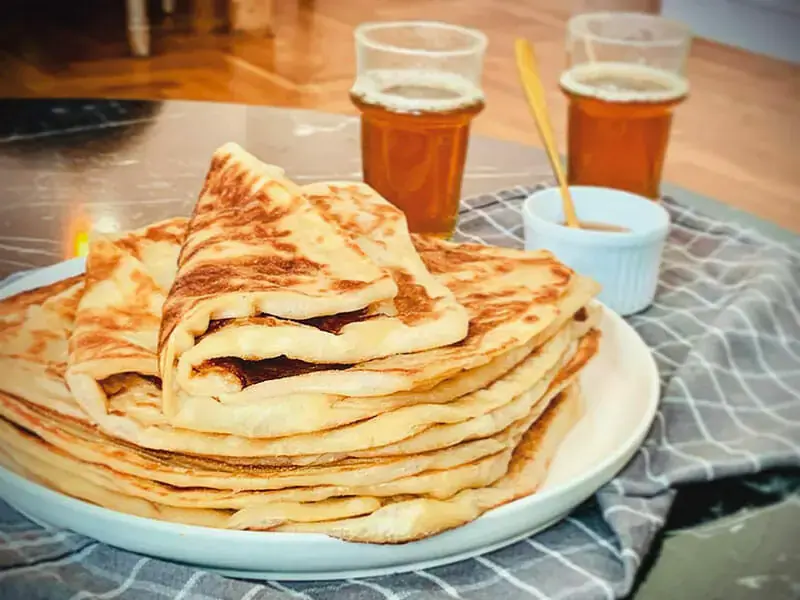
"Msemmen" is a staple soft, chewy and buttery Moroccan bread made from semolina flour, butter, sugar, salt and water. It is typically enjoyed for breakfast together with a fresh cup of Moroccan mint tea.
You can find msemmen anywhere in Morocco. It is one of the most well-known Moroccan dishes, it can be eaten with chocolate, cream cheese, honey, or any other toppings you like.
You can find msemmen in the famous local shops called ‘Mahlaba’, which usually offer a breakfast menu exclusively. A piece of msemmen is available for 2MAD, however the prices can slightly differ from one shop to another.

A sort of bread native to Morocco's Atlas area is called "harsha". Like msemmen, you can usually purchase a slice of Harsha for less than 2MAD at a mahlaba. Made with just semolina, butter, olive oil, and water. The majority of Moroccans like to eat it with their favorite toppings with a glass of Rayeb, which tastes like vanilla yogurt.
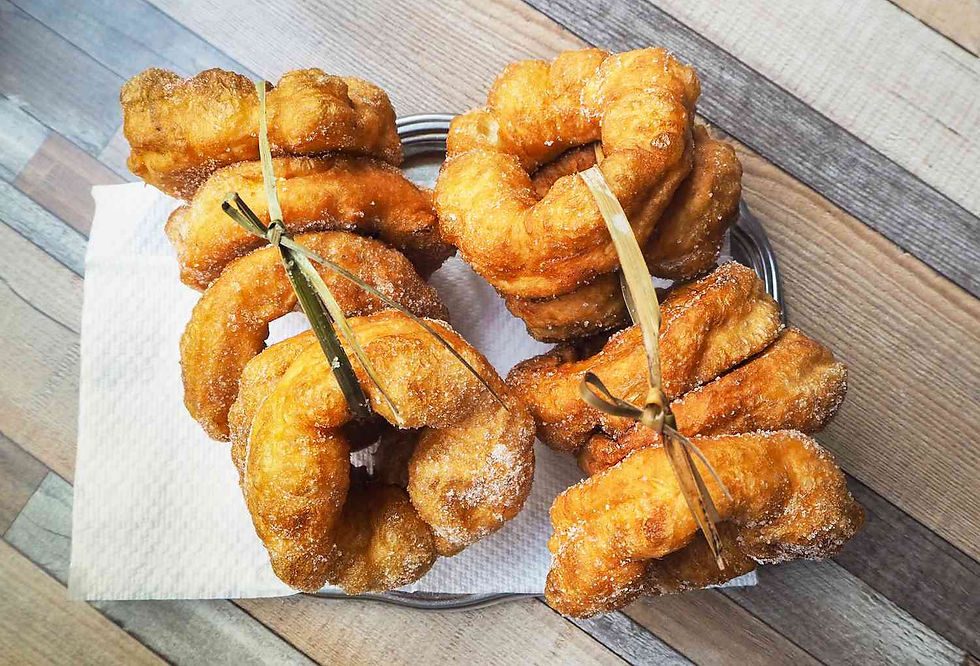
"Sfenj "is a tasty fried pastry in the shape of a donut that is commonly consumed for breakfast in Morocco. It is usually served with sugar or honey and a cup of mint tea. This is a traditional recipe from Andalusia that is hundreds of years old.
It has been eaten among Jews and Muslims in Morocco for centuries which explains why it has gained a huge popularity in cities such as Fez, Marrakech, Casablanca and Tetouan where the majority of Jews live.
One of the most affordable Moroccan street foods is sfenj, which costs less than 1MAD.
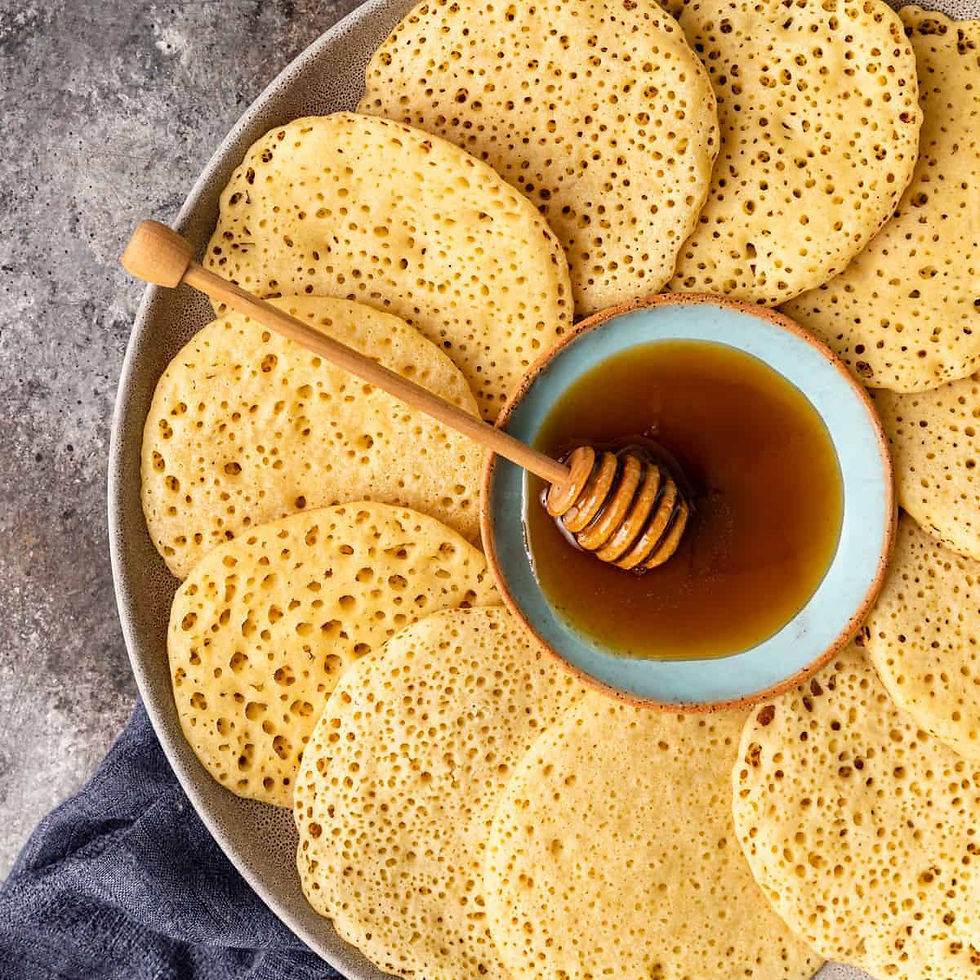
"Beghrir", also known as thousand-hole pancakes, is a sweet and fluffy brunch dish. Made with a basic batter of semolina flour, water, and yeast, these delicate pancakes can be pan-fried or griddle-cooked.
They have a distinct look because of the little holes that grow on the surface while they cook. Traditionally, beghrir is eaten with butter or honey, and occasionally, orange blossom water is drizzled on top for flavor.
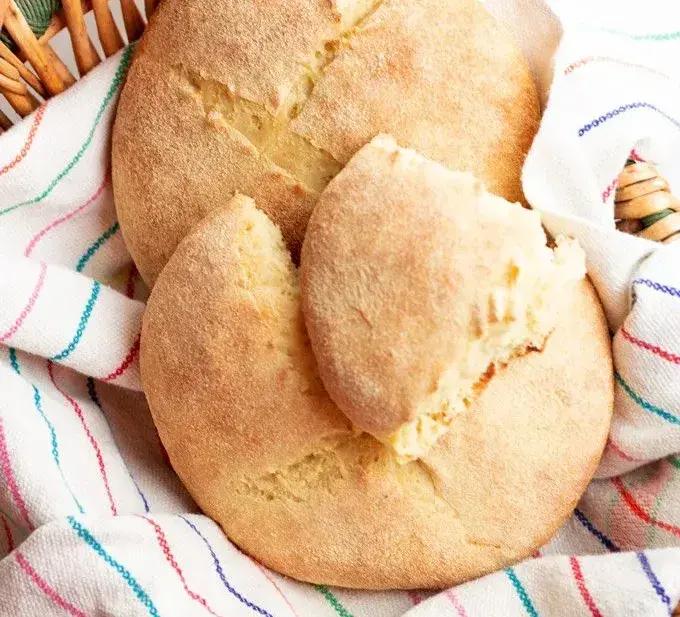
"Khobz" or the Humble Bread of Morocco has a little burnt and chewy texture because it is prepared in a traditional wood-fired oven using semolina flour. Khobz can be eaten simple or with a variety of toppings, such cheese, olives, or honey. It is typically served warm. It is also a fantastic side dish to dip with bissara or harira.
Street food
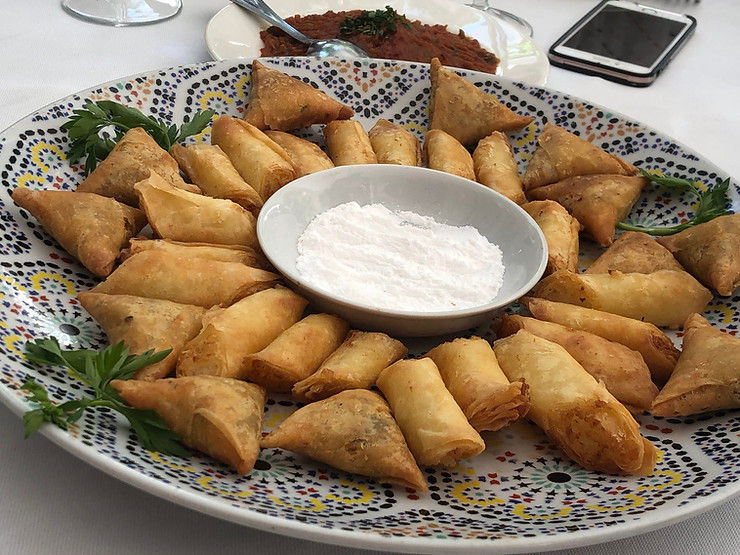
"Briwate" is a popular street food from Morocco that will definitely satisfy your palate. The flavorful filling of these delicate pastry triangles is a blend of ground beef, onions, spices, and a tiny bit of honey. They are then served with a side of harissa or lemon-tahini sauce after being deep-fried to a golden perfection.
These flavorful pastries have a variety of spices, meat, and vegetables inside. They make a tasty and substantial snack or dinner, and they're frequently baked or deep-fried.

"Maakouda" is a classic Moroccan potato patty spiced with different herbs and seasonings. It is one of the most popular street dishes in Morocco and may be eaten raw or combined with other delicious ingredients to make a sandwich.
Maakouda is essentially a steamed potato patty with cilantro, eggs, garlic, and spices that is dipped in a flour and egg mixture and deep-fried until it turns golden brown. A Maakouda sandwich typically costs between 5 and 15 MAD, depending on whatever extras you choose to include.
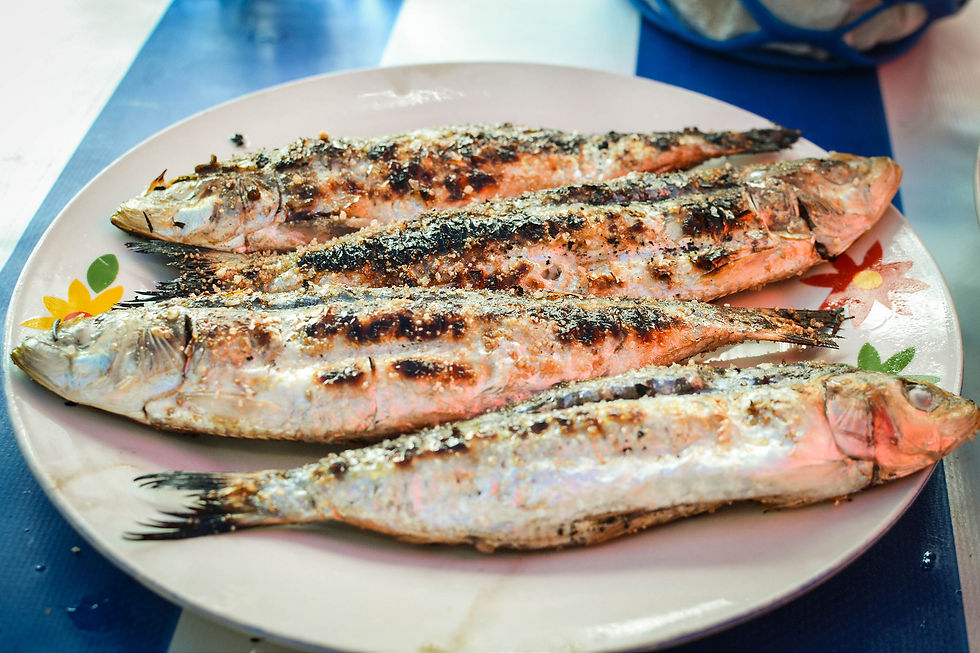
In Morocco, "sardines "are a common street dish that are frequently grilled and seasoned with salt, paprika, and cumin. They have a distinct flavor that is savory and just a little bit sweet, and they're a cheap and healthful alternative. A favorite option for both locals and visitors are sardines.
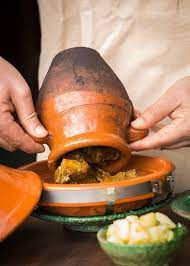
"Tangia" is a stew made with meat, vegetables, and spices, and it's cooked in in a clay pot buried in hot coals. This is a typical Marrakech dish that is a wonderful way to sample Moroccan cuisine.
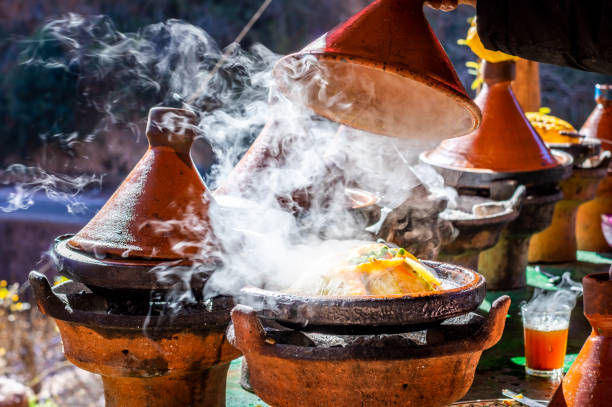
A symbol of Moroccan cuisine, the tagine is a slow-cooked stew often made in a clay pot with a conical form. Because of the tagine's distinctive form, flavors can gradually blend and deepen. Lamb tagine is a traditional option because of its soft meat and flavorful seasonings. Don't limit yourself to just one choice, though; tagines with chicken, fish, and vegetables provide a variety of tastes and textures.
Soup
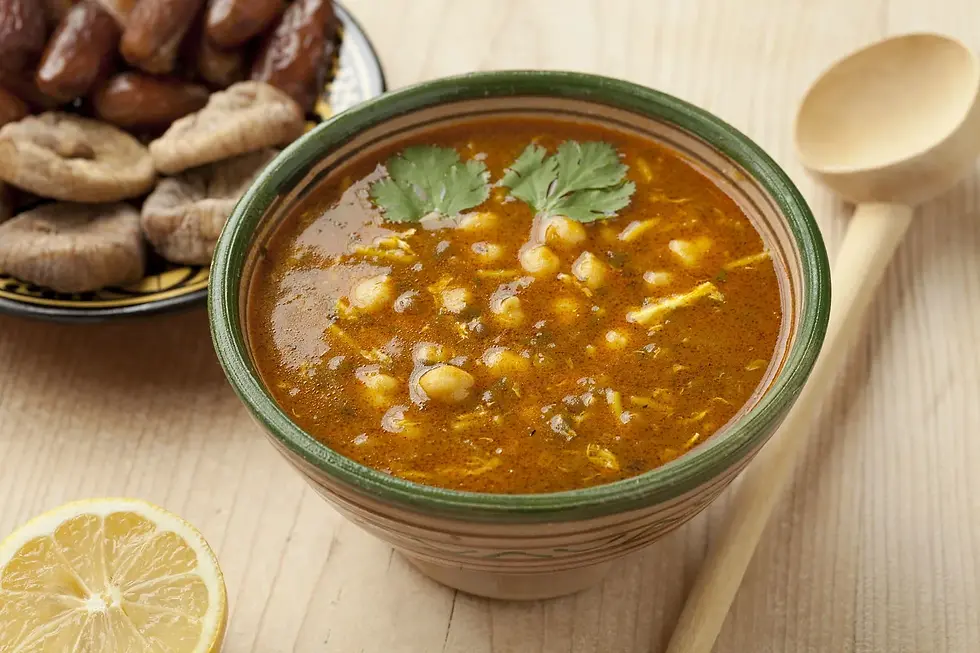
"Harira" is a thick, hot soup that is typically consumed in the winter. It is a well balanced meal because it includes meat, veggies, lentils, and chickpeas.
Since Moroccan food is well-known for its savoury and sweet pairing, most Moroccans view harira as a necessary soup during Ramadan. It is also perfect when served with chebakia. Similar to all the other dishes discussed, harira is a Moroccan specialty that is widely available. You may savor one of the classic and basic foods of the Moroccan people for as little as 15MAD with a bowl of harira.
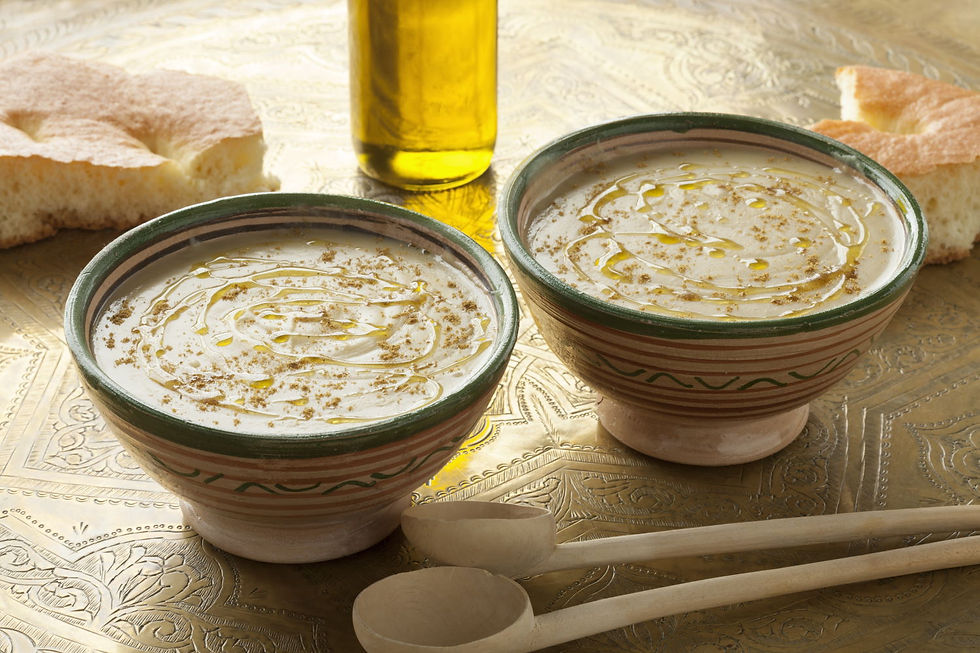
"Bissara" or dried fava bean soup has a flavor that is straightforward but filling. This traditional Moroccan cuisine is typically eaten for morning and is accompanied by bread, smashed garlic, cumin, chili powder, and olive oil drizzled over it. Usually savored in the winter, this thick, rich, and nutrient-dense soup is served simmering in these delicious handmade clay pots. Since Bissara costs less than 10 MAD, it's a must-try among the affordable street dishes in Morocco.
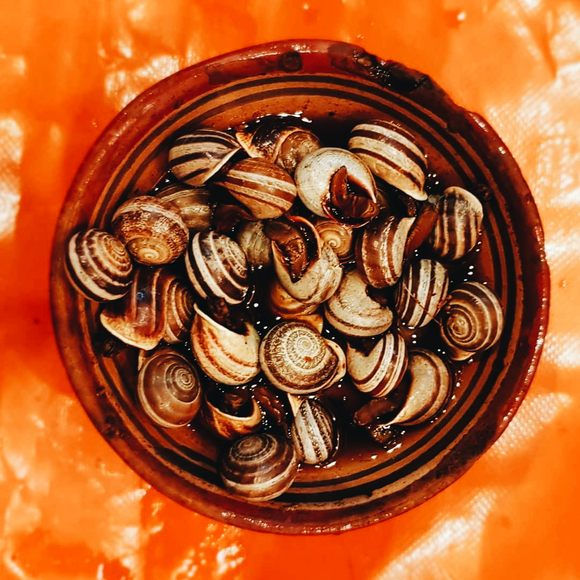
"Babouche" or Snails are cooked in a big pot of water with an absurd amount of spices and herbs. The soup's nourishing herbal broth contributes to its many health advantages in addition to its exquisite flavor.
The biggest health benefit of eating snail soup is why many Moroccans do it. It can help relieve discomfort and strengthen your immune system whether you have a cold, sore throat, or gastrointestinal issues.

